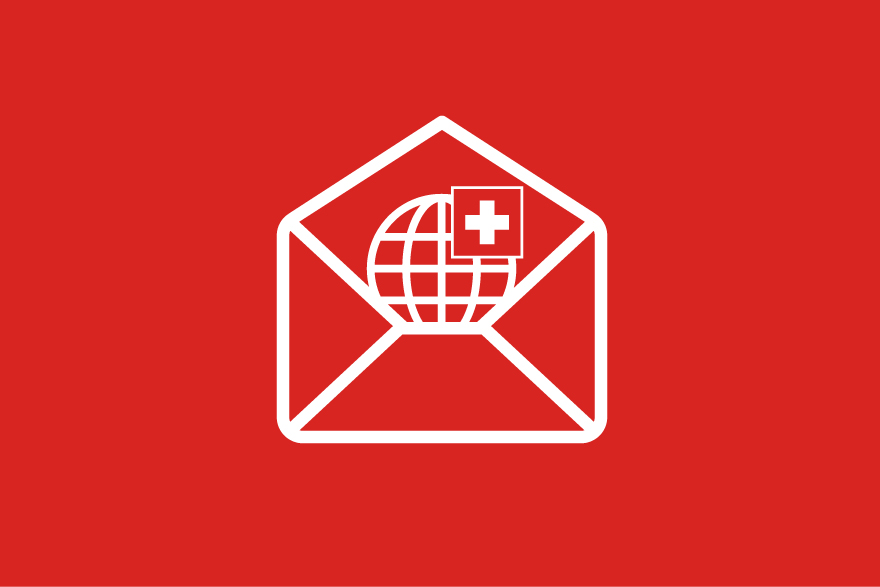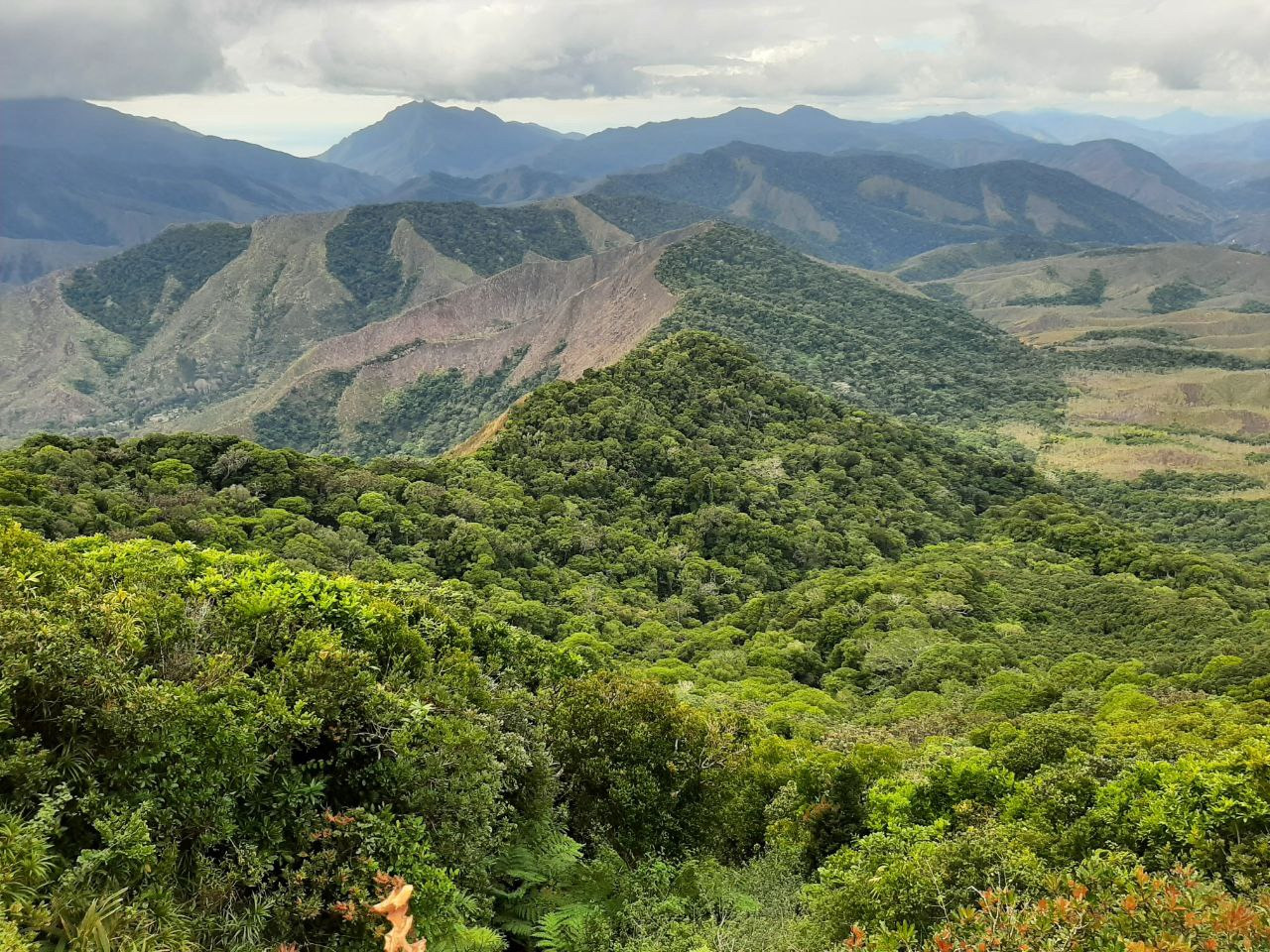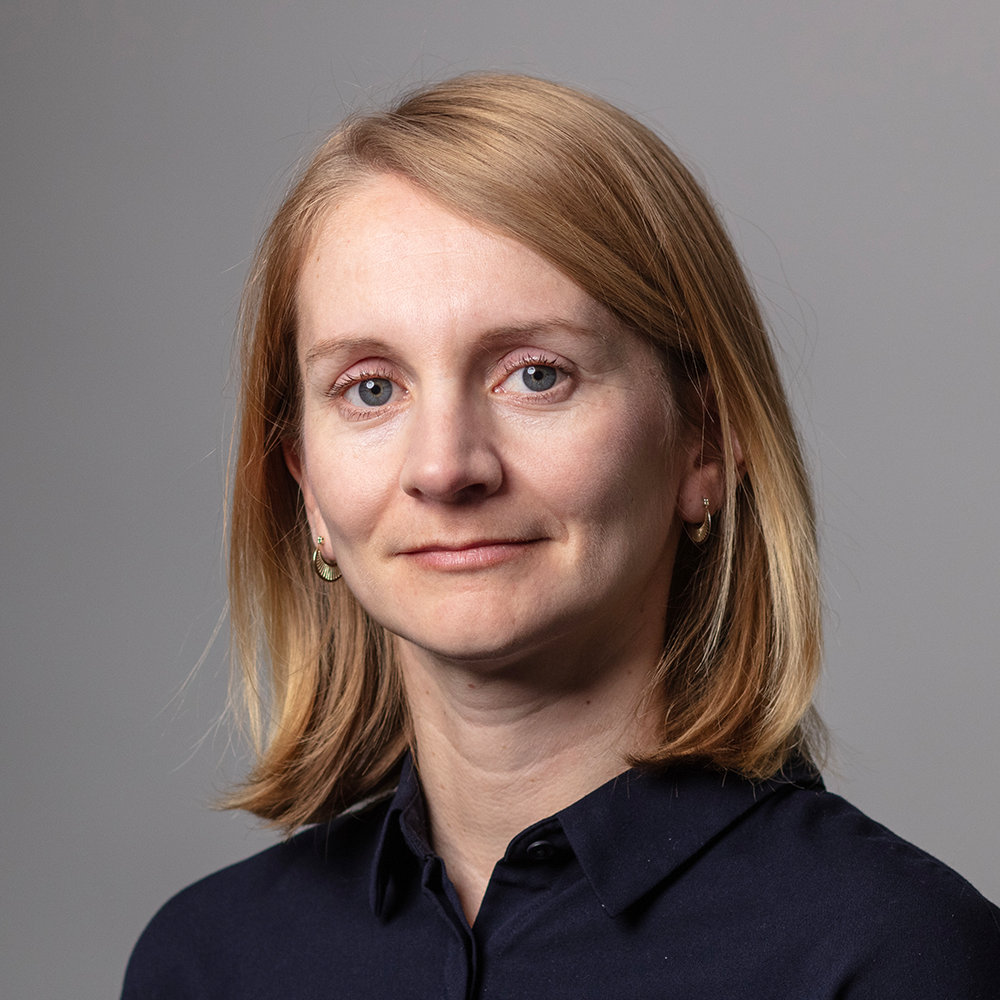
Electoral reform in France reignites old conflicts in New Caledonia

Swiss linguist Jean Rohleder had to interrupt his work in New Caledonia owing to violent rioting. He explains what's really behind the protests.
Jean Rohleder, a Swiss linguist at the University of Bern, was already on his way to New Caledonia, a French territory comprising dozens of islands in the South Pacific, when protests broke out. He intended on returning to where he had spent nearly a year studying the indigenous language of an ethnic group, but because the airport in the capital Nouméa was closed, he travelled to the Australian capital of Canberra instead. There, he was able to find short-term accommodation at a university.
What is happening on this tropical island east of Australia, to which French President Emmanuel Macron had to rush in May? Macron travelled 16,000km to spend 24 hours thereExternal link, a trip triggered by violent protests breaking out around the capital.

Jean Rohleder is working as a post-doctoral researcher at LACITOExternal link, a research institute of the National Centre for Scientific Research (CNRS) in Paris, on a Swiss National Science Foundation (SNSF) fellowship until the end of 2025. He is researching Nemi and Paicî, two languages spoken in the north of New Caledonia.
“There are many texts about Nemi and Paicî, but in order to clarify in-depth questions, field research interviews onsite are indispensable,” he says.
New Caledonia is a key overseas French territory, not only because its location is geopolitically and militarily advantageous, but also because the island state is rich in nickel deposits. Barricades have now blocked the roads, and incensed inhabitants have set fire to cars and looted shops. The government tried to regain control, and a state of emergency was declared for 12 days. However, Macron’s visit failed to calm the situation and the riots, which have claimed the lives of nine peopleExternal link, continue.
Rohleder is following the events, including via the public news platform La 1ère Nouvelle CalédonieExternal link. He sees pictures of street barricades and burnt-out shops and reads headlines such as “Crisis in New Caledonia”.
But for him, this doesn’t tell the whole story. “They portray it as a riot by drunken youths,” he explains over the phone from Australia. “I haven’t seen a report on La 1ère that has really explained the background.”
Indigenous opposition to electoral reform
The violent protests in New Caledonia were triggered by legislative reform in France, which would grant all people who have lived in the country for ten years the right to vote. What might sound like a democratic matter of course has, however, caused uproar among the indigenous Kanak population, who fear becoming even more of a minority than they already are.
Currently, only people who lived in New Caledonia between 1988 and 1998 and their descendants can vote.
“This rule on electoral law is part of the agreement that made peace possible in the country after the struggles for independence in 1989,” says Rohleder. He says it is written into the constitution of New Caledonia, and now many New Caledonians are shocked that France should change this unilaterally.
The fact that not all residents currently have the same voting rights violates European Union democratic principles – but the Kanaks don’t want liberté, egalité and fraternité, the national motto of France. “They are afraid that they will be seen as French rather than New Caledonians,” says Rohleder.

More
Everything you need to know about the Swiss Abroad
Special rights
Currently, they still have special rights, for example over “traditional territories”, made up of reserves and restituted land. This land can be neither sold nor given away and belongs to the clans collectively, who can build there without restriction and lead a traditional way of life.
But in terms of numbers, they are in the minority: 40% of the 270,000-odd population of New Caledonia is ethnic Kanak. “They have nothing against new people coming,” says Rohleder, “but they demand rules”.
He says their problem is with large French landowners who, with their high water consumption, jeopardise the supply for others, ruin the soil with their large herds of cattle, and impact Kanak opportunities on the job and housing market. They also have a problem with French people who move to New Caledonia for the climate and diving adventures, who hardly leave the capital and do not engage with the New Caledonian culture.
But the mood in New Caledonia has not just shifted because of the reform – it was simply the spark that ignited the Kanak’s anger. The island state has already voted three times on independence from France, via referendums that the Kanak had fought for. On two occasions, the referendums failed to achieve a majority.
On the third time in December 2021, the loyalists won overwhelmingly; the separatists had boycotted the vote. The indigenous population had mourned many deaths during the Covid pandemic and urged that the date be postponed during their period of mourning. However, France stuck to its decision.

The fight for independence in the 1980s
Even before these referendums, violence often broke out in New Caledonia when the indigenous population resisted racial discrimination, exploitation and land theft.
“The Kanak achieved a lot in the 1980s,” says Rohleder. Even then, they set up barricades, attacked the police and successfully fought for their rights. “However, there was also ongoing negotiation – violence was not the first resort,” he adds.
This is why most older Kanaks today find it difficult to condemn the riots, even if they, like most people in New Caledonia, do not commit violence themselves, he explains. The “arsonist hordes” are a very small group, one correspondent reportsExternal link, and are mainly active in and around the capital.
Many young people around Nouméa were eager for an opportunity to prove themselves, says Rohleder, just like the Kanaks before them in the fight for independence in the 1980s and during the revolts of 1878 and 1917.
The young Kanaks have machetes, can shoot and are well organised, and they are angry at the French state, which killed thousands of indigenous people and denied them the right to vote until 1952 and the right to schooling until 1957. Even today, they perceive the difference between indigenous people and white settlers.
“Although they are French citizens, they don’t have the same opportunities as those who grew up in white families,” says Rohleder. Cost savings are being made in poorer neighbourhoods through the closure of youth clubs and similar institutions. There are slum neighbourhoods around Nouméa mostly populated by Kanak people, and open racism is the order of the day, he says.
Loss of indigenous culture
During the state of emergency, authorities blocked access to the social media platform TikTok. But while the platform was lost, the indigenous populations still have 28 languages in which they can communicate without censorship. But the longer the island state is part of France, the more its indigenous culture is threatened with extinction, eliciting a feeling of powerlessness and progressive loss among these people.

Rural populations largely uninterested in violence
Rohleder travelled to New Caledonia for the first time in 2016. While there, he lived in villages on the northeastern coast and got to know the way of life among the rural population while documenting the language of the indigenous Vamale group. He is still in contact with friends and his former host family via Facebook and WhatsApp.
He says the impact of the barricades was also noticeable for most Kanak, with less petrol, tobacco or gas available for cooking. In the villages, people are sustaining themselves through their gardens and fishing.
There are concerns regarding the supply of medicines such as insulin – the diabetes rate in New Caledonia is high, like everywhere in the South Pacific. However, most of the rural population is uninterested in violent conflict.
“My contacts say they will remain peaceful as long as there is discussion,” says Rohleder, and that the indigenous population is open to a new referendum.
Fourth-largest nickel producer in the world
With a view to detaching from France, nickel mines have become a talking point. New Caledonia is the fourth-largest nickel producer in the world, but prices for the metal have fallen and competition from Indonesia is threatening local producers. The Swiss commodities group Glencore recently sold a mine in New CaledoniaExternal link.
During his time there, Rohleder himself witnessed the divide between the white and indigenous populations first-hand and was even threatened himself. For him, this is the result of decades of tension.
Reform implementation postponed
As the situation in New Caledonia has still not calmed down, Rohleder has decided not to travel to New Caledonia for now. Instead, he will work at the institute in France that sent him on the mission to the South Pacific and try again in the autumn.
After more than a month of crisis in New Caledonia, Macron has announced that the implementation of the controversial reform will be postponedExternal link, given it is not currently realistic for the law to come into force anyway, following the re-election of the French parliament on July 7 – 16,000km away.
Edited by Balz Rigendinger. Translated from German by Katherine Price/ts

In compliance with the JTI standards
More: SWI swissinfo.ch certified by the Journalism Trust Initiative



























You can find an overview of ongoing debates with our journalists here . Please join us!
If you want to start a conversation about a topic raised in this article or want to report factual errors, email us at english@swissinfo.ch.